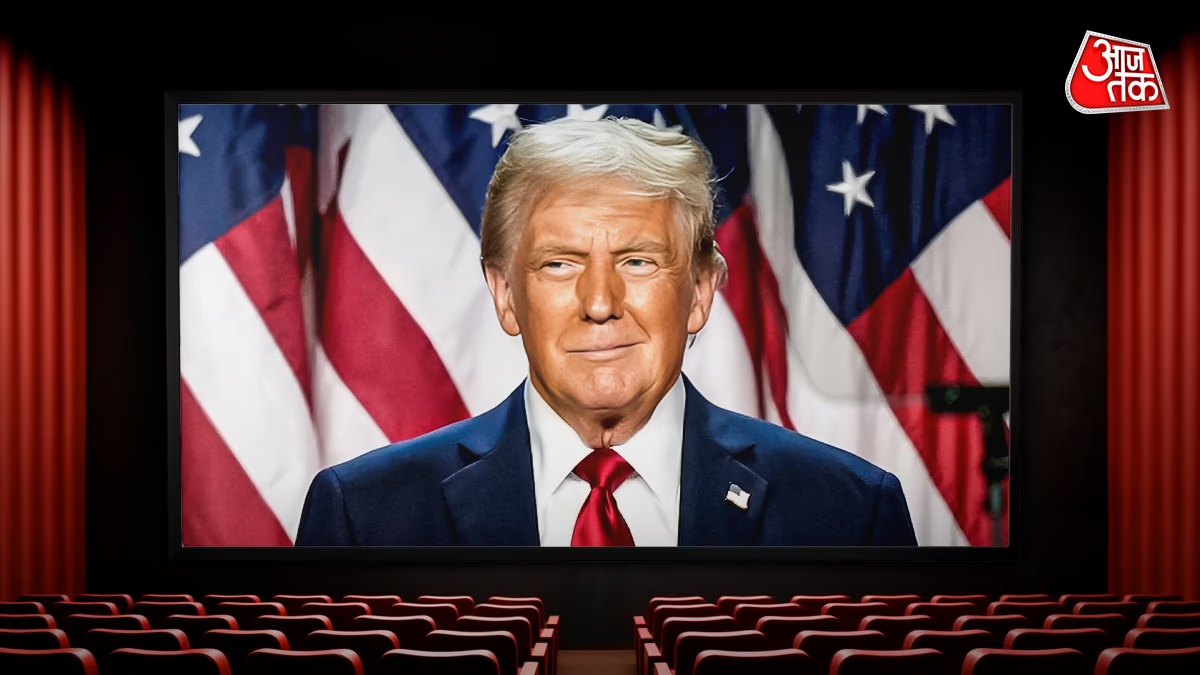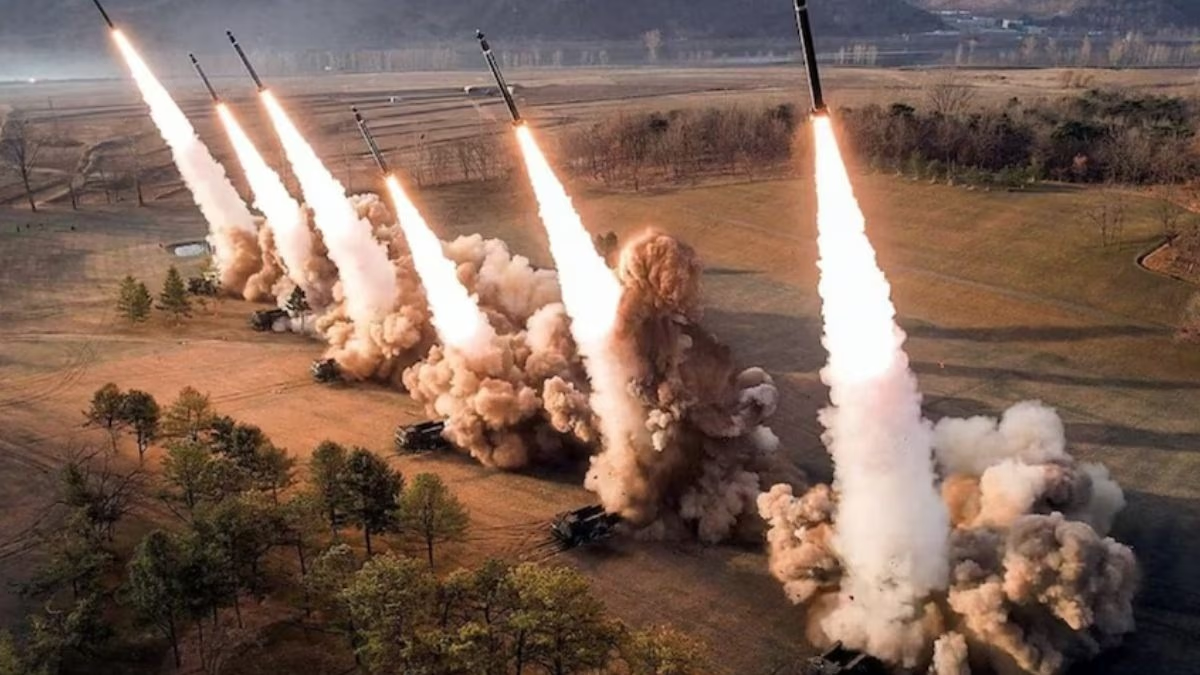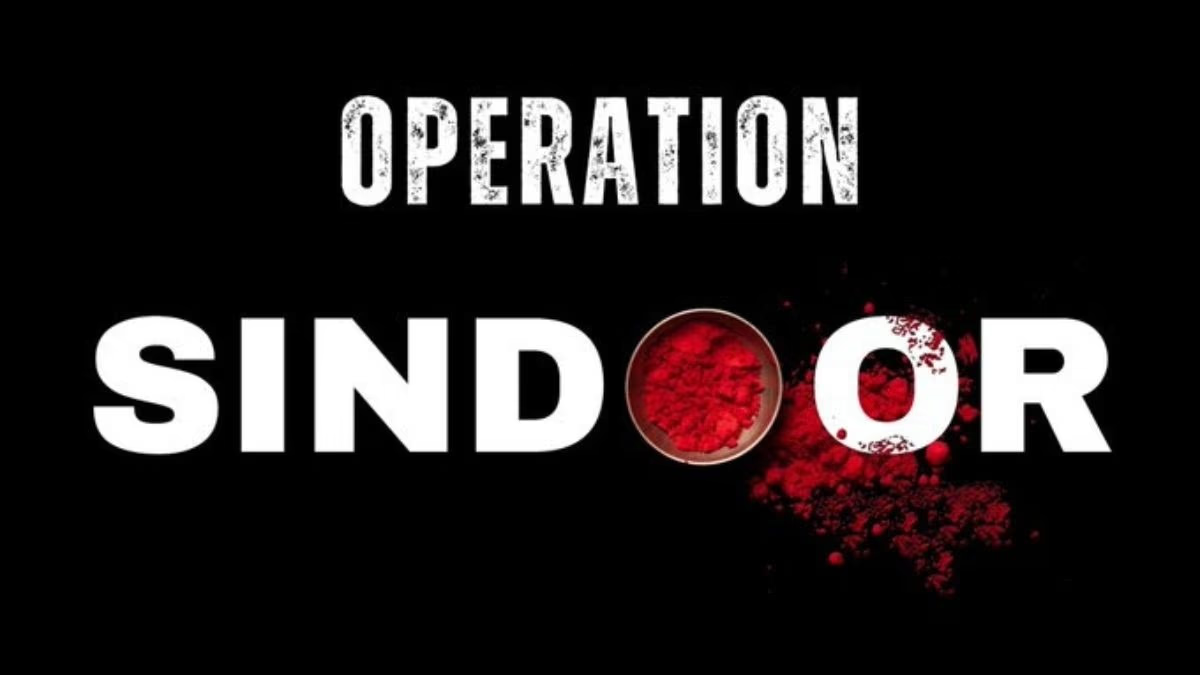On a typical Monday morning, President Donald Trump's proclamation sent shockwaves across the global film industry. Using his social media platform, Trump announced an imposition of a 100% tariff on films produced on foreign soil being introduced in the United States.
This sweeping declaration, where Trump underscored the decline of the American movie industry and marked foreign films as a 'threat to national security,' spurred ripples of concern among global film studios, production houses, and filmmakers. Beyond the apprehension, the announcement has also seeded substantial confusion within the film ecosystem, pivoting especially around its potential impact on Hollywood. Let's unravel the intricacies of this declaration, the underlying confusion, and its likely implications on Hollywood.
The China Connection in Trump's Declaration
Recent times have seen tensions around tariffs between the US and China intensify. In China, a set quota system governs the admittance of foreign films to theaters. Amid a tariff war with the US, China declared a potential reduction in the quota for American films. As the second-largest film market globally after the US, such a quota reduction was a troubling sign for Hollywood studios. While many Hollywood films have thrived in China, recent years have seen a stronger performance by domestic Chinese films. Thus, Trump's announcement is perceived as a reaction to China's earlier stance.
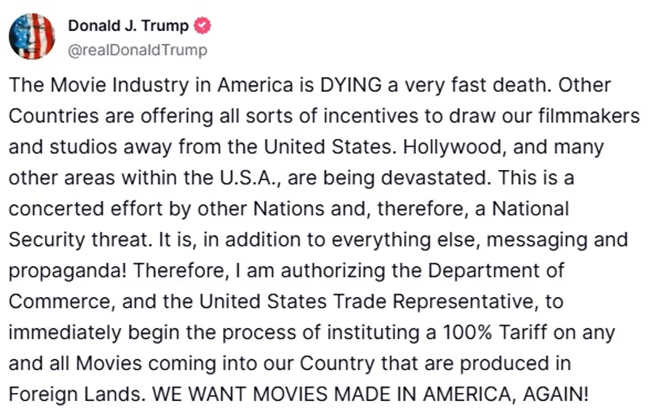
Source: aajtak
What Exactly Did Trump Say?
In his post, Trump stated, 'America's movie industry is rapidly dying. Other nations are providing incentives to lure our filmmakers and studios out of the United States, decimating areas in Hollywood and the USA internally. This seems to be a coordinated effort by other countries, hence it's also a national security threat. Aside from several other factors, the threat of messages and propaganda through films is alarming! Consequently, I have authorized the Department of Commerce and the United States Trade Representative to initiate a process of imposing a 100% tariff on any and all films produced on foreign soil that enter our country. We need 'Made in America' movies once again!'
Reacting to Trump's post on social media platform X, US Commerce Secretary Howard Lutnick commented, 'We are on it.' However, neither Howard nor Trump clarified how these film tariffs would be implemented, fuelling more global confusion surrounding this announcement.
The Confusion Embedded in Trump’s Announcement
The primary technical hitch in imposing tariffs is that they typically apply to ‘physical goods.’ In layman’s terms, tariffs can be imposed on any goods arriving in the country from abroad. Historically, cinema reels were physical goods as they were imported and exported, recording films on these reels. But with digitization, films are shared digitally. Hence, how can tariffs be imposed on films under such circumstances?
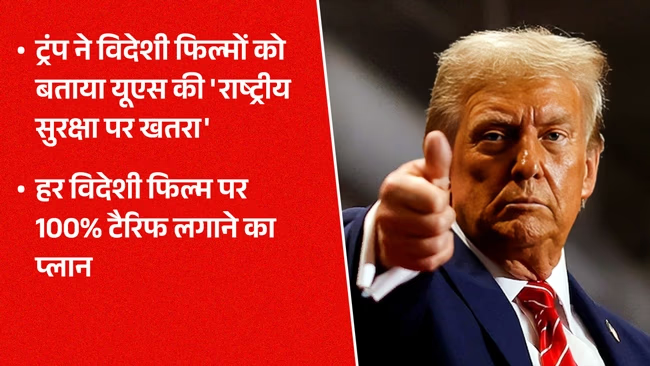
Source: aajtak
This complexity gives rise to a more worrisome question - if films aren’t ‘physical goods,’ will ticket prices for movies produced abroad face higher taxes? And how will the definition of ‘foreign production’ be finalized? As numerous Hollywood and US studio projects are filmed in Europe and other countries, while cinema from India and other nations is partially shot in the US, what will constitute ‘foreign production’ become a contentious point. A report from Variety even raises doubts about President Trump's authority to impose such tariffs.
Another significant confusion arises as Trump's post speaks solely of films, leaving out TV shows, which comprise a substantial portion of Hollywood content. Will TV shows remain unaffected?
The Tension About Trump's Plan within Hollywood
The pressing question is, what will happen to films from US studios largely produced in other countries? These include major Hollywood franchises like 'James Bond,' 'Mission Impossible,' 'Fast and Furious,' and MCU (Marvel Cinematic Universe). In 2023, Hollywood Writers Guild leaders staged a strike over writer fees, the use of AI, and other issues. Multiple Hollywood labor unions participated in this. Solutions arose through new deals between labor unions and studios, although reports indicate a 40% reduction in US film and TV production followed (perhaps due to increased fees). Meanwhile, studios worldwide began focusing on reducing film production costs to revive business.
Consequently, several Hollywood studios have shifted production to countries like Canada, the UK, Australia, New Zealand, and Hungary due to shooting incentives provided in these locations, which help lower film budgets. Crew charges in these regions are considerably less than their Hollywood counterparts. Moreover, storytelling in franchises like 'James Bond' and 'Fast and Furious' inherently demands showcasing diverse global locations, which also contributes to the necessity for foreign production.
Bloomberg reports that Hollywood's or the US film market's business encompasses triple the amount of business exported than imported from other countries. Last year, none of the top 50 films at the US box office were foreign language films. Conversely, most of the highest-grossing films globally were released by US studios; many of these productions were foreign. Simply put, the US film market amasses substantial profits by selling its products worldwide. Therefore, Hollywood's greater fear is if other countries respond to Trump’s decision by levying tariffs on US-made films, what will transpire then?

Source: aajtak
Is Hollywood Truly Declining?
Trump cited Hollywood’s declining business as a reason for imposing tariffs on foreign films. Like the rest of the world, Hollywood's business suffered significantly during the lockdown era. Every country’s film business is still striving to reach 2019 levels. Nevertheless, circumstances are gradually improving. A Variety report indicates domestic revenue at the US box office this year rose 15.8% compared to last.
Though still 31% behind 2019, films like 'A Minecraft Movie,' 'Sinners,' and 'Thunderbolts' are witnessing robust box office collections. Meanwhile, with upcoming films like the next 'Mission Impossible' and several substantial MCU projects, many releases this year are projected to propel Hollywood’s domestic business closer to 2019 levels.
The Impact of Trump’s Announcement Will Be Apparent This Month
So far, Trump has unveiled his plan through a social media post; however, specifics regarding its implementation and technical details remain undecided. Yet, the early impacts of this plan will likely surface this month. From May 13, the Cannes Film Festival—one of the world’s most prestigious film events—will commence. Besides showcasing films, significant market deals transpire at this event.
Hollywood films will endeavor to sell their foreign release rights at this event, while worldwide filmmakers approach major Hollywood studios for projects. However, in light of Trump’s new plan, Hollywood’s foreign partners will have numerous questions, initiating plans to navigate the new tariffs’ effects on deals. Consequently, international filmmakers and projects are anticipated to hesitate in collaborating with Hollywood this time.
Implications for Bollywood?
Trump's declaration signals concern among Indian filmmakers too. Not only Bollywood but Telugu, Tamil, and Malayalam industry films derive substantial revenue from the US market. This year, the Malayalam industry's biggest film 'Empuraan' and Shah Rukh Khan's 'My Name is Khan' (2010) earned more abroad than in India. A significant chunk of their overseas collections stemmed from the US box office.

Source: aajtak
Recently, Indian films have increasingly been shot in other European countries and foreign locations as opposed to the US. Consequently, whether the US imposes tariffs based on shooting location or studio specifics, Indian productions face potential setbacks. However, clarity will emerge once the details of the US tariffs on foreign films policy are disclosed.
Nevertheless, if the US imposes tariffs on foreign films, significant Indian projects aiming to elevate Indian cinema on an international platform could face repercussions. These include filmmaker S.S. Rajamouli’s Mahesh Babu starrer post 'RRR,' Ranbir Kapoor's 'Ramayana,' KGF star Yash's 'Toxic,' Allu Arjun’s film with Atlee, and Shah Rukh Khan's thriller 'King.' These are all major projects where Indian filmmakers are emphasizing large budgets, and securing screenings in the world's largest film market, the US, is pivotal for budget recovery. However, imposing tariffs may inflate release costs significantly, impacting these films adversely.
Oscars Will Feel the Impact Too
Currently, films submitted to the primary Oscar competition undergo a 'General Entry' process. These entries compete in all Academy award categories like Best Actor, Best Actress, Best Music, Best Director, and several technical awards.
For general entry consideration, a film's release in the US remains a criterion. A submitted film must premiere in any of the six metro areas in the US, playing three shows daily for seven days. If it meets the Academy’s technical standards, any producer can submit their film to the competition.
Filmmakers worldwide seek US releases so that a week-long theatre run qualifies their film for 'General Entry.' However, with tariffs, the cost of releasing films in the US will skyrocket, becoming unfeasible for many filmmakers. Consequently, tariffs on foreign films will also affect their Oscar campaigns.
